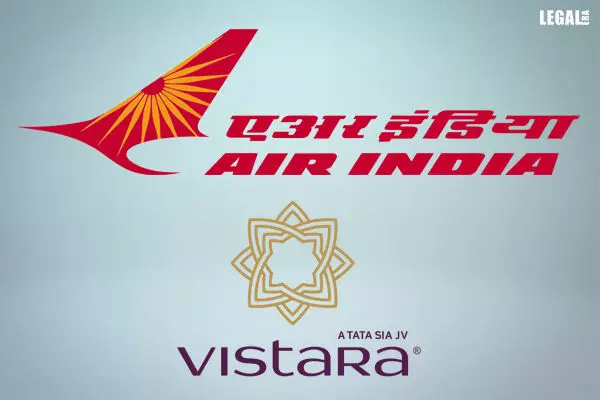- Home
- News
- Articles+
- Aerospace
- AI
- Agriculture
- Alternate Dispute Resolution
- Arbitration & Mediation
- Banking and Finance
- Bankruptcy
- Book Review
- Bribery & Corruption
- Commercial Litigation
- Competition Law
- Conference Reports
- Consumer Products
- Contract
- Corporate Governance
- Corporate Law
- Covid-19
- Cryptocurrency
- Cybersecurity
- Data Protection
- Defence
- Digital Economy
- E-commerce
- Employment Law
- Energy and Natural Resources
- Entertainment and Sports Law
- Environmental Law
- ESG
- FDI
- Food and Beverage
- Gaming
- Health Care
- IBC Diaries
- In Focus
- Inclusion & Diversity
- Insurance Law
- Intellectual Property
- International Law
- IP & Tech Era
- Know the Law
- Labour Laws
- Law & Policy and Regulation
- Litigation
- Litigation Funding
- Manufacturing
- Mergers & Acquisitions
- NFTs
- Privacy
- Private Equity
- Project Finance
- Real Estate
- Risk and Compliance
- Student Corner
- Take On Board
- Tax
- Technology Media and Telecom
- Tributes
- Viewpoint
- Zoom In
- Law Firms
- In-House
- Rankings
- E-Magazine
- Legal Era TV
- Events
- News
- Articles
- Aerospace
- AI
- Agriculture
- Alternate Dispute Resolution
- Arbitration & Mediation
- Banking and Finance
- Bankruptcy
- Book Review
- Bribery & Corruption
- Commercial Litigation
- Competition Law
- Conference Reports
- Consumer Products
- Contract
- Corporate Governance
- Corporate Law
- Covid-19
- Cryptocurrency
- Cybersecurity
- Data Protection
- Defence
- Digital Economy
- E-commerce
- Employment Law
- Energy and Natural Resources
- Entertainment and Sports Law
- Environmental Law
- ESG
- FDI
- Food and Beverage
- Gaming
- Health Care
- IBC Diaries
- In Focus
- Inclusion & Diversity
- Insurance Law
- Intellectual Property
- International Law
- IP & Tech Era
- Know the Law
- Labour Laws
- Law & Policy and Regulation
- Litigation
- Litigation Funding
- Manufacturing
- Mergers & Acquisitions
- NFTs
- Privacy
- Private Equity
- Project Finance
- Real Estate
- Risk and Compliance
- Student Corner
- Take On Board
- Tax
- Technology Media and Telecom
- Tributes
- Viewpoint
- Zoom In
- Law Firms
- In-House
- Rankings
- E-Magazine
- Legal Era TV
- Events
Tata Group Approaches CCI: Air India-Vistara Merger

Tata Group Approaches CCI: Air India-Vistara Merger
Air India owned by Tata Group has approached the Competition Commission of India to seek its approval for the merger transaction between Air India and the Singapore Airlines- Vistara.
Currently, the Tatas fully own Air India, while Vistara is a joint venture between the Tata Group (51%) and Singapore Airlines (49%). SIA has committed to investing $250 million after the merger and will own 25.1% of the merged entity.
A notice filed with CCI read as follows:
“The proposed transaction relates to consideration of the merger of Tata Singapore Airlines Limited (Vistara) into Air India and the acquisition of shares in the merged entity by Singapore Airlines and Tata Sons.”
As a result of the Proposed Transaction, Tata Sons Private Limited (TSPL) will hold at least 51 percent of the total issued and paid-up equity share capital of the Merged Entity and will continue to retain control over AIL and its subsidiaries, whereas SIA will hold a minority stake, i.e., 25.1 percent of the total issued and paid-up equity share capital of the Merged Entity.
In November 2022, Singapore Airlines and Tata Group announced a merger between Air India and Vistara. A few months Air India CEO Campbell Wilson also announced that the brand Vistara will end after the merge process gets completed.
The merger is expected to be completed by FY24 and will also see SIA investing Rs 5, 020 crore in the combined entity as additional capital FY 23 and 24.
The move is a part of the conglomerate’s strategy to have two airlines — merging Vistara and Air India to form a full-service carrier and a low-cost one by merging AirAsia India and Air India Express.
The notice also mentions that the move will not lead to any change in the competitive landscape or cause any appreciable adverse effect on competition in India, irrespective of the manner in which the relevant markets are defined.
The notice further pointed out ‘horizontal overlaps’ in areas such as “market for domestic passenger air transport services in India; market for international passenger air transport services in India; market for provision of air cargo transport services in India; and market for provision of charter flight services in India.”
In addition, the notice cited ‘vertical relationships’ such as the upstream market for ground handling services at the Bengaluru, Delhi, Hyderabad and Thiruvananthapuram airports.
It is important for the competition regulator CCI to note whether the combined entity will have enough competition on certain key routes. In case it is unconvinced about certain aspects of the merger, the CCI will prescribe remedial steps to iron out those issues.


